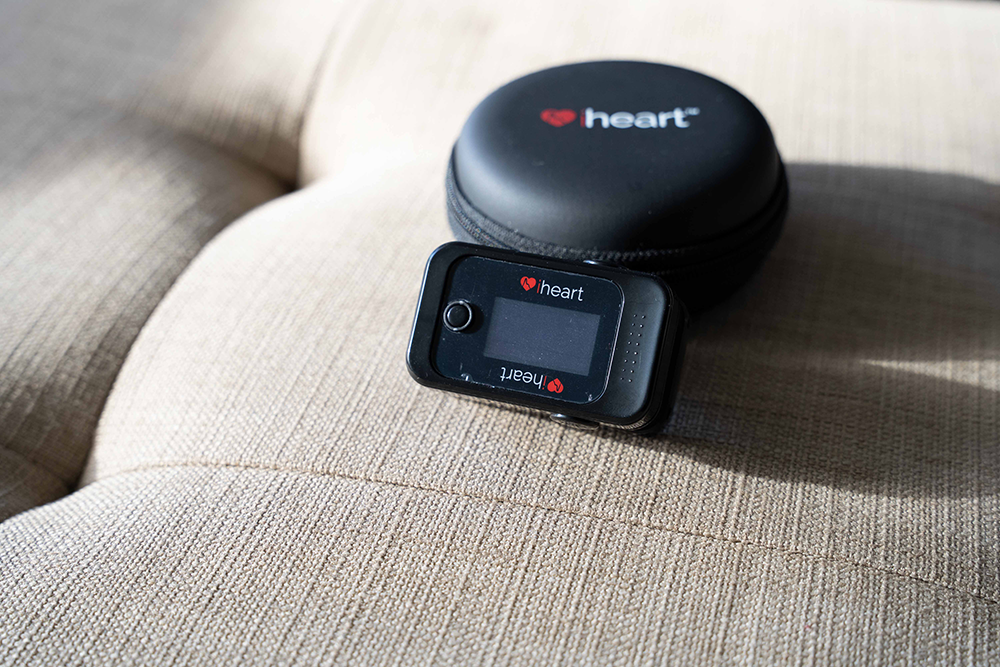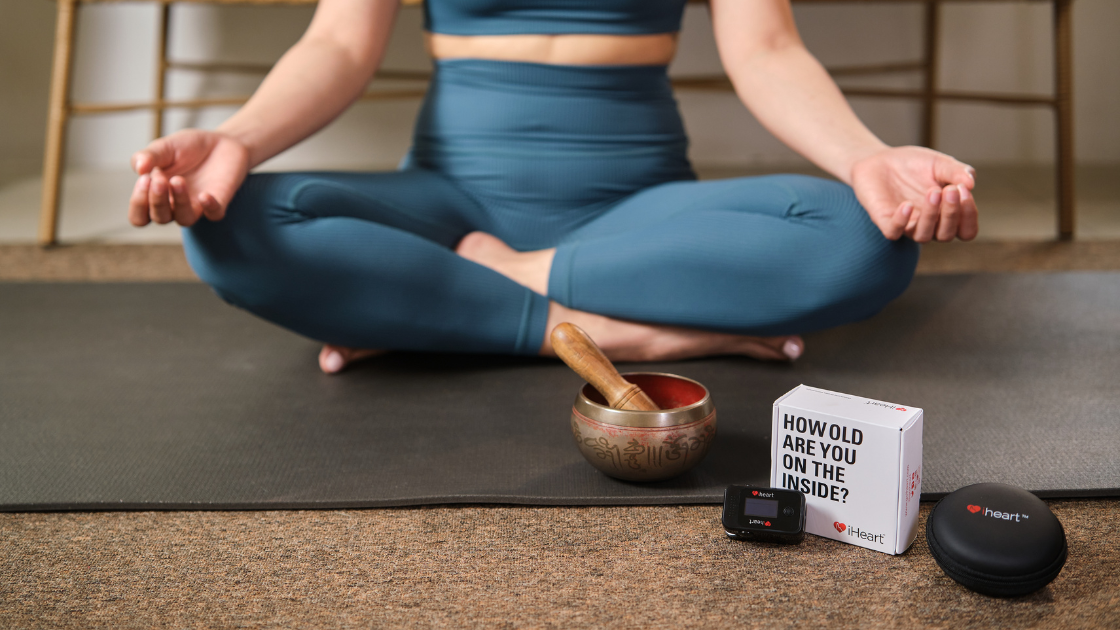Heart rate variability (HRV) isn’t a health metric most of us think about day to day, but it can give us vital clues into how our bodies are coping with stress. This is important to know, since acute and chronic stress can have a negative effect on our overall wellness if left unmanaged.
Thankfully, there are simple techniques anyone can do to reduce their stress levels and positively change their HRV. That’s why we created the iheart HRV app: to give you insight into your stress levels along with the motivation to build stress management skills.
The core goal of iheart HRV is to assess the balance between the sympathetic and parasympathetic parts of our autonomic nervous system (or ANS), thus determining your stress levels by assigning you a numerical score, with 100 being the most relaxed, and 0 being the most stressed possible. But before you begin using the app, here’s some helpful information about HRV and what it means for your health.
What is Heart Rate Variability (HRV)?
HRV is a simple concept. It refers to the amount your heart speeds up as you inhale and how much it slows down as you exhale. Someone with high HRV would have a greater difference between their inhaling heart rate and their exhaling heart rate, whereas someone with low HRV would see less variation between these rates.
If you are experiencing a lot of stress, you will have a lower HRV. That’s because when we’re stressed, our breathing becomes shallower. Your heart rate won’t change very much, since your inhales and exhales are short. If you’re relaxed, you will have a higher HRV. When we’re relaxed, we take slow, deep breaths, giving the heart a greater chance to speed up and slow down with each inhale and exhale.
Why does my HRV score mean for my health?
Unregulated stress has been shown to be a contributing factor to increased aortic stiffness.¹
We talk a lot about aortic stiffness at iheart because it’s a fantastic indicator of overall health and longevity. Your aorta is the largest blood vessel in your body, and it stiffens over time with age and lifestyle factors. A stiff aorta points to an increased risk of cardiovascular disease and cognitive decline. Keeping our aortas flexible and healthy is crucial to whole-body wellness - and even extending our lives.
That’s why it’s so important to keep our stress within normal levels and regularly practice stress-reducing techniques. By decreasing stress levels, we can reverse aortic stiffness and increase our internal mobility. Internal mobility is the opposite of aortic stiffness. It refers to the youthfulness and flexibility of core internal structures, including our spine, aorta, diaphragm, and central organs.
As we mentioned above, if you’re experiencing significant stress, you will likely get a low HRV score. A low score may indicate that you need to reassess your current lifestyle and find healthy ways to manage your stress.
If you get a low score and don’t feel that your life is causing you stress, you may be fighting an illness or overtraining at the gym.
How do I reduce stress and improve my HRV score?
You can reduce your stress levels and improve your HRV score by making a habit of practicing stress-reducing techniques. Some simple yet proven ways to manage stress include:
-
Regular physical activity
-
Exercise that involves breathwork (like yoga and tai chi)
-
Diaphragm-centred breathing exercises
-
Meditation
-
Making time for laughter and loved ones

While we can’t completely remove stress from our lives, it might be helpful to take a step back and determine what lifestyle changes you can make to reduce extra stress. If you can’t control the number of stressors you’re dealing with right now, practicing the methods listed above can help keep your stress in a healthier range.
Build lasting positive habits with iheart HRV
The iheart HRV app can be an excellent learning tool to help you practice relaxation techniques. The instant biofeedback it provides can be useful for practicing relaxation techniques and building stress-reducing habits.
As you take your readings and watch the line fluctuate on the graph, you can see how your heart rate and oxygen saturation are affected by your thoughts, outlook, and breathing. We encourage you to use this as an opportunity to learn how your body reacts to physical manifestations of stress, such as shallow breathing, rapid heartbeat, and tension. Learn more about how to get the most out of the iheart HRV app.
Stress doesn’t have to take a harmful toll on your body. By learning how to manage stress effectively and building stress-reducing habits, you can lower your overall stress and improve your coping skills.

Sources






Share:
3 Stress-Busting Foods You Need to Start Eating
A Beginner’s Guide to Meditation